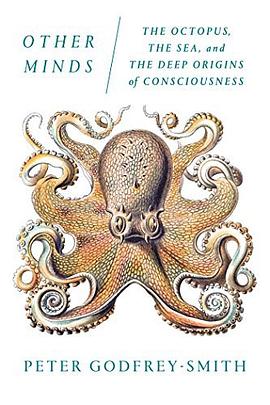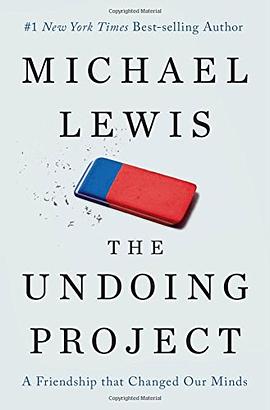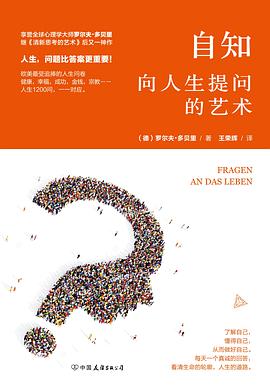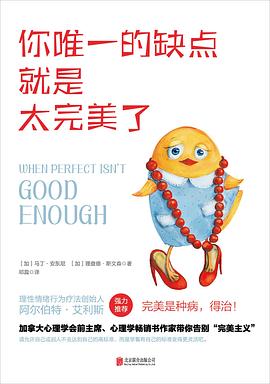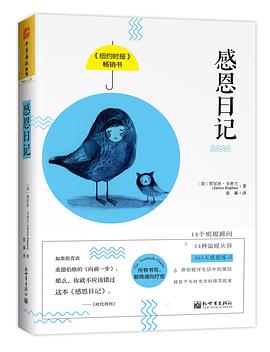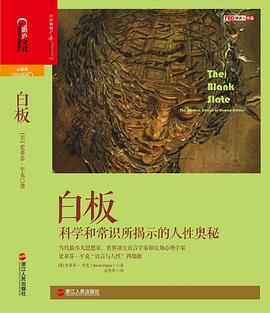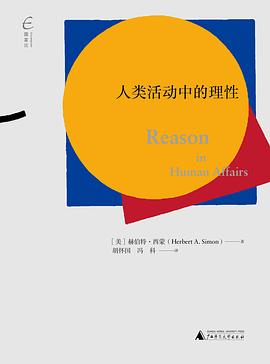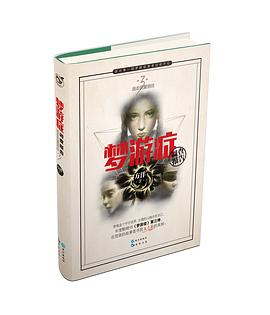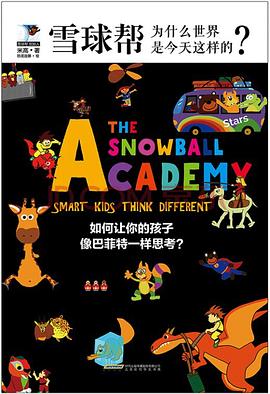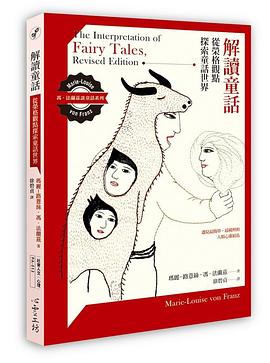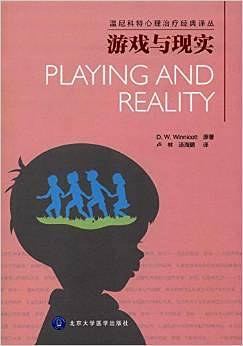
具体描述
A controversial call to arms, Against Empathy argues that the natural impulse to share the feelings of others can lead to immoral choices in both public policy and in our intimate relationships with friends and family.
Most people, including many policy-makers, activists, scientists, and philosophers, have encouraged us to be more empathetic—to feel the pain and pleasure of others. Yale researcher and author Paul Bloom argues that this is a mistake. Far from leading us to improve the lives of others, empathy is a capricious and irrational emotion that appeals to our narrow prejudices. It muddles our judgment and often leads to cruelty. We are at our best when we are smart enough not to rely on it, and draw upon a more distanced compassion.
Based on groundbreaking scientific findings, Against Empathy makes the case that some of the worst decisions that individuals and nations make—from who to give money to, when to go to war, how to respond to climate change, and who to put in prison—are too often motivated by honest, yet misplaced emotions. With clear and witty prose, Bloom demonstrates how empathy distorts our judgment in every aspect of our lives, from philanthropy and charity to the justice system; from culture and education to foreign policy and war. Without empathy, Bloom insists, our decisions would be clearer, fairer, and ultimately more moral.
Bound to be controversial, Against Empathy shows us that, when it comes to major policy decisions and the choices we make in our everyday lives, limiting our empathetic emotions is often the most compassionate choice we can make.
作者简介
[加]保罗·布卢姆(Paul Bloom)
● 知名认知心理学家和发展心理学家、耶鲁大学公开课zui受欢迎教授、TED演讲人。
● 布卢姆是耶鲁大学zui受欢迎、zui风趣的心理学教授之一。他的心理学导论课是耶鲁大学zui受欢迎的公开课之一,全球有上千万人观看、学习这一公开课的视频。
● 布卢姆是《科学》杂志评出的Twitter上zui有影响力的50位明星科学家之一,美国哲学与心理学协会前任主席,《行为与脑科学》杂志联合主编。
● 布卢姆因出色的研究和教学工作而获奖无数。他的文章屡见于《纽约时报杂志》《自然》《纽约客》《科学》等刊物。著有畅销书《善恶之源》《快感:为什么它让我们欲罢不能》。
目录信息
读后感
“我必须开宗明义:我并不反对道德、慈悲、善良、爱、做一个好邻居、做一个让人尊敬的人或者做正确的事。实际上,我写这本书就是为了支持以上所有事。我想要让世界变得更好,只是我认为用共情这种方法是行不通的。” 01 — 向常识挑战的一本书。我读后被作者说服了。 共情,就...
评分说实话, 这本书争议大, 褒贬不一, 在 Amazon 上评分也不高. 毕竟有同情心有爱心在大多数人眼中是好的而不是坏的. 不过最近看了 "知否知否应是绿肥红瘦" 这个宅斗剧才明白这一点 以前压根不看这种宫斗宅斗剧, 但是 "知否" 这部剧的主题曲太好听了, 就想着看看. 里面的两个大反派...
评分情侣和朋友相处,都希望对方能与己共情,快乐我的快乐,难过我的难过。 父母教育孩子,会努力培养孩子的共情能力,“宝贝,如果别人这样对你,你会有什么感受呢?” 平时讲课、写文章的时候,也会注意感性理性结合,因为只有道理没有故事的内容,难以激起受众的共情。 共情如此...
评分如果你期望通过看这本书来发现作者有何摆脱共情的道理,那还是不要看了。 实际上,作者并没有反对共情,或者鼓励大家摆脱共情,作者翻来覆去说得都是要认知共情,不要情绪共情而已... 其中有一段讲述不要过度共情的例子很适用当下中国家庭的教育,比如孩子的父母,相较于爷爷奶...
评分如果看一下联合国的世界幸福报告(World Happiness Report),你会发现,中国近几年都稳居中游。在构成幸福的要素中,中国的社会支持比较好,但慷慨却很低。社会支持通常是熟人所给予的,而慷慨的对象是陌生人。 共情的坏处: 共情就像一盏聚光灯,让人只能看到并关怀眼前的几...
用户评价
这本书的文字,如同一剂苦涩的良药,虽然口味不佳,却能直击病灶。我一直将“同情”视为人类最宝贵的品质之一,是道德的基石。然而,作者却以一种极为尖锐的视角,剖析了“同情”的另一面,那些可能带来的“偏见”和“不公”。我被作者对“因人而异的同情”的论述所吸引,他指出,我们更容易对那些与我们有共同点的人产生同情,而对那些来自不同背景、不同文化的人,则可能表现出冷漠甚至敌意。这种“内群体偏好”的同情,在社会现实中屡见不鲜,它可能导致不公平的资源分配,甚至加剧社会的分裂。作者通过大量的历史和社会案例,生动地展示了同情心是如何在特定情境下,被选择性地放大或压抑,从而导致不公正的对待。这让我开始反思,自己的同情心是否也存在着类似的“盲点”,我是否在不自觉中,对某些群体给予了过多的关注,而忽略了另一些同样需要帮助的人。这本书无疑是一次深刻的认知洗礼,它迫使我去面对自己内心的偏见,并努力去追求一种更加普适、更加公正的同情。
评分这本书的出现,如同一声惊雷,瞬间点燃了我内心深处长久以来积压的困惑与思考。我一直在追寻关于人类情感本质的答案,渴望理解那些驱动我们行为,有时又让我们陷入泥潭的力量。作者的笔触犀利而深刻,他并没有试图去描绘一个理想化的情感世界,而是直视了那些隐藏在“同情”这个看似美好的词汇之下,可能存在的陷阱和阴暗面。我尤其被作者对“同情”的定义和分析所吸引,他剥离了那些附加的道德光环,将同情还原为一种原始的、生物性的反应。这种反应,在很多情况下,确实能够促使我们伸出援手,感受他人的痛苦,但同时,他也警示我们,这种直接的情感共鸣,可能并不总是理性的,也可能被误导,甚至被利用。这种细腻的洞察,让我开始重新审视自己过往的许多行为和判断,那些我曾以为是出于纯粹善意的举动,是否也掺杂了某种不自知的动机?读到这里,我仿佛站在一面镜子前,镜子里的影像既熟悉又陌生,既让我反思,又让我对自我有了更深的理解。作者的论证逻辑严谨,层层递进,他通过大量的案例分析和理论探讨,为我的思想打开了一扇新的窗户。
评分我必须说,这本书的出现,对我而言,无异于一场思想的地震。我一直将“同情”视为一种绝对的美德,一种无需质疑的力量。然而,作者却以一种近乎“反直觉”的方式,揭示了“同情”的另一面,那些可能带来的负面影响,甚至是灾难性的后果。我被作者对“策略性同情”的分析深深吸引,他指出,在某些情况下,人们可能会有意识地表现出同情,以达到某种特定的目的,而这种同情并非发自内心,而是作为一种工具被使用。作者通过对政治、商业以及人际关系中的诸多现象的解读,生动地展示了“策略性同情”是如何被用来操纵他人、获取利益,甚至掩盖真实的意图。这让我开始审视自己过往的经历,是否也曾不自觉地陷入过这种“策略性同情”的陷阱,或者成为了被他人“策略性同情”所误导的对象。这本书无疑是一次深刻的警醒,它让我意识到,我们不能仅仅被情感所驱使,更要学会辨别信息的真实性,以及洞察行为背后隐藏的动机。
评分这本书的文字,如同手术刀般精准而锐利,直指人心最隐秘的角落。我一直以为,“同情”是人类最纯粹、最无私的情感之一,是区分文明与野蛮的界碑。然而,作者的观点,让我不得不重新审视这个根深蒂固的信念。他并没有否定同情的作用,而是深入剖析了同情可能存在的“盲点”和“陷阱”。我被作者关于“群体同情”的论述所震撼,他指出,我们往往更容易对与自己群体相似的人产生强烈的同情,而对“他者”则相对冷漠。这种“群体偏好”的同情,在很多时候,反而会加剧社会的分裂和冲突。作者通过大量的历史和社会案例,生动地展示了同情心是如何在特定情境下,被放大或扭曲,从而导致不公平的对待。这种深刻的洞察,让我开始反思,我自己的同情心是否也存在着类似的偏向,我是否在不自觉中,对某些群体给予了过多的关注,而忽略了另一些同样需要帮助的人。这本书无疑是一次思想上的洗礼,它迫使我去面对自己内心的偏见,并努力去超越那些局限性的情感。
评分阅读这本书的过程,是一场充满挑战却又极具启发性的智力之旅。我一直以为,“同情”是一种无条件的善意,一种本能的反应。然而,作者的观点,却让我不得不对这个概念进行更深层次的审视。他以一种近乎“颠覆性”的姿态,剥离了“同情”身上附加的道德光环,并揭示了其背后可能存在的“功利性”和“计算性”。我被作者关于“预期回报”的论述所吸引,他指出,在很多情况下,我们的同情行为并非完全是无私的,而是可能包含着对未来回报的潜在预期,无论是来自他人的感激、社会的认可,还是内心的满足感。作者通过对行为经济学、心理学等多个学科的交叉引用,生动地阐述了这种“情感投资”是如何在潜移默化中影响着我们的决策。这让我开始审视,自己过往的许多“善举”,是否也掺杂着某种不自知的“功利”计算,是否在期待着某种形式的回报。这本书无疑是一次深刻的自我剖析,它让我认识到,人类的情感,远比我们想象的要复杂和多层次。
评分这本书的文字,如同精密的解剖刀,精准地剖析了人类情感中最微妙也最复杂的层面。我一直认为,“同情”是人类最原始、最纯粹的情感反应,是连接个体与社会的重要纽带。然而,作者却以一种令人耳目一新的视角,挑战了这一根深蒂固的观念。他并没有全盘否定同情的作用,而是深入探讨了同情所可能带来的“选择性”和“局限性”。我被作者对“情感传染”的论述所吸引,他指出,当我们在人群中感受到普遍的同情情绪时,我们可能会不加思索地随波逐流,而忽略了对个体情况的独立判断。这种“情感传染”的现象,在群体事件、网络舆论等场景中尤为明显。作者通过大量的案例分析,揭示了这种集体情感的爆发,可能在某些时候,并非源于对事实的深刻理解,而是源于一种难以言喻的群体性共鸣。这让我开始反思,在接收信息和形成判断的过程中,我是否也容易受到群体情绪的影响,而失去了独立思考的能力。这本书无疑是一次深刻的认知重塑,它让我明白,真正的同情,需要建立在理性分析和独立判断的基础上。
评分这本书带来的震撼,不仅仅是思想上的启迪,更是一种对认知模式的颠覆。我过去一直认为,同情心是连接人与人之间最重要的桥梁,是构建和谐社会不可或缺的基石。然而,作者以一种近乎颠覆性的视角,挑战了这一普遍认知。他并非全盘否定同情的作用,而是指出,当同情成为一种盲目的、不受控制的情感冲动时,它所带来的后果往往是灾难性的。我被作者对“情感短视”的论述深深吸引,他生动地描绘了同情心如何在面对具体、鲜活的个体痛苦时,表现得尤为强烈,而对于那些抽象的、普遍性的苦难,则显得力不从心。这种“近在眼前”的痛苦更能激发我们的同情,而“远在天边”的苦难则可能被漠视。这让我联想到许多社会现象,那些突发的、戏剧性的悲剧往往能迅速引发广泛的同情和援助,而长期的、系统性的不公和压迫,却可能因为缺乏足够的“情感触动”而被忽视。作者对这种“同情不对称”的分析,既令人警醒,也发人深省,它迫使我去思考,如何才能在保持同情心的同时,避免其潜在的局限性,如何才能让我们的同情心更加理性、更加有效,真正地服务于更广泛的福祉。
评分这本书带来的,不仅仅是知识的增长,更是一种深刻的自我反思。我一直认为,“同情”是人类最美好的品质之一,是社会和谐的粘合剂。然而,作者以一种极为犀利的视角,剖析了“同情”的另一面,那些可能隐藏在美好表象之下的复杂动机和潜在后果。我被作者对“叙事同情”的论述所吸引,他指出,我们更容易对那些有具体故事、有鲜活形象的个体产生同情,而对于那些数字化的、抽象的苦难,则往往会感到麻木。这种对“叙事”的依赖,使得我们的同情心变得选择性,也容易被精心编织的故事所操纵。作者通过大量生动的例子,揭示了媒体、政治宣传等是如何利用“叙事同情”来影响公众情绪,进而达成其政治或经济目的。这让我开始警惕那些打动人心的故事背后,可能存在的更深层的意图。这本书无疑是一次深刻的认知颠覆,它让我明白,在感受他人痛苦的同时,更要保持清醒的头脑,去探究事实的真相,并做出更加理性、更加全面的判断。
评分阅读这本书的过程,就像是在经历一场智力上的探险,充满了意想不到的发现和深刻的洞察。作者对于“同情”的解读,远超出了我之前的任何想象。他没有停留在对同情表现的描述上,而是深入到其背后的心理机制和社会影响。我尤其欣赏作者对“同情疲劳”和“同情政治”的探讨,这些概念为我理解许多社会现象提供了全新的视角。他阐述了在信息爆炸的时代,我们如何可能因为过度暴露在他人痛苦的信息中而产生“同情疲劳”,从而对苦难变得麻木。同时,他也揭示了同情心是如何可能被某些群体或个人所利用,成为一种操纵民意、实现自身利益的工具。这种对同情背后复杂力量的洞察,让我开始警惕那些看似充满善意的呼吁,并学会了更加审慎地去评估信息和情感的来源。作者的论证清晰而有力,他通过大量的例子,证明了过度依赖同情,而忽略理性和长远规划,往往会导致事倍功半,甚至适得其反的结果。这本书让我明白了,真正的善良,并非仅仅是情感的流露,更是一种理性的判断和负责任的行动。
评分我必须承认,这本书的观点,在初读时,确实带给我不小的冲击。我一直以来都将“同情”视为一种美德,一种值得推崇的品质。作者却以一种近乎“反英雄”的姿态,拆解了“同情”的固有光环,并揭示了其背后可能存在的复杂性甚至危险性。我被作者对“同情”与“公正”之间关系的探讨深深吸引,他认为,过度的同情,尤其是那些基于情感而非理性的同情,可能会干扰我们做出公正的判断。在一些情况下,我们可能因为同情某个个体,而忽视了对更广泛群体应有的责任和义务,或者为了“平息”眼前的痛苦,而牺牲了长远的公平。作者的论证严谨,他通过对社会政策、司法判例等多个维度的分析,展示了同情心在决策过程中可能扮演的误导性角色。这让我开始重新思考,在面对复杂的社会问题时,我们应该更多地依赖情感的驱动,还是理性的分析?这本书无疑为我提供了一个全新的思考框架,它让我意识到,真正的智慧,在于如何在情感的温度与理性的冷静之间找到一个平衡点。
评分the conflict between rationality and human nature designed by evolution
评分the conflict between rationality and human nature designed by evolution
评分共情的「过犹不及」的效应对个人行为决策给予了更多道德层面的挟持。作者认为更健康的团结是建立于—我理解你的处境,在意你的感受,但我的精神世界不痛不痒。批判过剩的共情迫害了理性的运转条件。
评分开始以为他会写到any charitable act is an act of feeling good之类的 结果就是简单的rationality is superior to empathy这种argument 举的例子和观点(e.g.,你不需要去感受溺水小孩的痛苦而救他; 不能同时对多人共情)也很有问题 失望
评分the conflict between rationality and human nature designed by evolution
相关图书
本站所有内容均为互联网搜索引擎提供的公开搜索信息,本站不存储任何数据与内容,任何内容与数据均与本站无关,如有需要请联系相关搜索引擎包括但不限于百度,google,bing,sogou 等
© 2026 qciss.net All Rights Reserved. 小哈图书下载中心 版权所有


